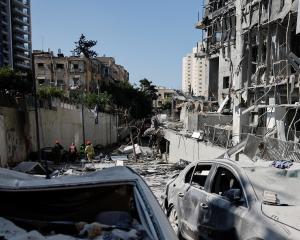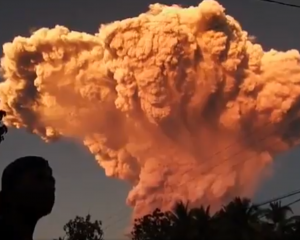The riot was the second deadly melee in three days at the prison just across the U.S. border from San Diego.
About 12 people were injured and two remain in critical condition, said Agustin Perez, spokesman of the Public Safety Secretary's office, which oversees prisons in Mexico's state of Baja California.
Blaming prison troublemakers for the uprisings that killed a total of 23 inmates, state authorities immediately transferred 250 inmates to other prisons in Tecate and Ensenada.
But relatives of the inmates say they rioted because they were not given food or water since the previous riot on Sunday.
Mike Apodaca, 55, of San Diego, joined the families outside La Mesa on Thursday. He said he has been waiting since Monday morning for news on his son, Michael John Apodaca, 25, who was charged with drug possession about four months ago.
"I'm worried about him. They haven't told us anything, whether he's OK or not," Apodaca said.
Apodaca's son is one of about 250 Americans jailed at La Mesa. State officials say no Americans were among the dead.
Apodaca said his son told him he shares a six-person cell with about 30 other men in the overcrowded prison, which now holds about 8,000 inmates.
"He said they got roaches that bite them all the time," he said. "They got rats as big as cats."
Sunday's riot erupted after a guard killed a 19-year-old inmate, Perez said. The inmate had confronted three guards after they found drugs and cell phones in his prison cell. One of the guards was arrested and that the other two are being sought, Perez said.
State investigators suspended La Mesa's warden and two other top prison officials pending an investigation of irregular conduct. Perez said he did not have details of the allegations and that such investigations are routine after a riot.
La Mesa has long been held up as the quintessential example of what's wrong with Mexico's corrupt and overcrowded prison system. Its inmates gained worldwide notoriety after they built and ran their own city inside the penitentiary's sprawling courtyard, buying and selling townhomes, running shops and hiring prostitutes.
Federal police bulldozed the village in 2002 under former President Vicente Fox, who touted its destruction as proof his government was serious about combatting corruption. But the overcrowded prison has held onto its reputation for violence and ungovernability.











